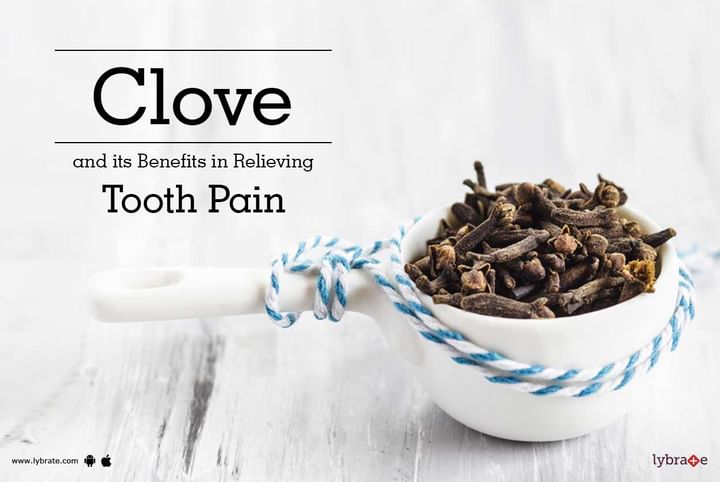Clove and its Benefits in Relieving Tooth Pain
Clove is a commonly known spice, which is native to the Asian cuisine. They are dried flower buds of a tree from the family of Myrtaceae. These buds are known to be harvested originally in Maluku Islands in Indonesia. The cloves are aromatic and is known to lend a sweet and earthy flavor to food. Historically, cloves have been used both for culinary and medicinal uses. As a culinary spice, clove is used in meat dishes, curries, drinks and marinades. It is widely used in Indian, Chinese, African and South Asian cuisine.
Cloves have amazing medicinal properties. The bud has been widely recognized as a wonder bud packed with health benefits. In India, cloves are an important element of Ayurvedic medicine. It’s warm and soothing properties are beneficial for treating digestive tract problems. Clove oil is used in aromatherapy and can also be used as an ant repellent, due to its strong smell.
Clove oil is extracted from cloves and contains a chemical compound called Eugenol. This compound not only lends aroma to the spice, but also possesses analgesic, antibacterial, antiseptic and anesthetic properties. It is for this reason, clove oil is used extensively in dentistry as an anodyne (A pain reliever). Its antiseptic and antibacterial properties are beneficial in treating infections and its anesthetic qualities are extremely helpful in relieving pain.
In painful teeth conditions like an abscessed tooth, infections, gum disease or even cavities, toothache can range from mild to sharp shooting and almost unbearable pain. The patient suffering from such conditions is usually put on antibiotics, thus, it is wise to recommend using Ayurvedic clove oil or Eugenol oil as it is commonly known for its pain relief properties. Eugenol helps in providing relief from pain by arresting the nerve tissues, causing a local anesthetic effect. However, it is strongly advised to use clove oil only under the guidance of a dentist.
Since Clove oil can alter blood sugar levels and is warm in nature and is not recommended for patients suffering from diabetes or bleeding disorders. Caution must be exercised as overuse of clove oil can cause nerve damage. If using at home, it is better to mix 2 to 3 drops of the clove oil along with half a teaspoon of olive oil and then apply the mixture to the painful area. The oil can also be applied using a cotton ball on the painful tooth with the help of tweezers; however, it is important that one should not keep the oil for more than 10 seconds on the affected area. It is also important not to swallow any oil as it can be harmful for your health. Drinking clove tea or chewing a clove till it releases its oil is much safer and effective way to use it, than using a clove oil.
So, next time you have a toothache, do not suffer. Try this medicinal gift, but stay safe. If you wish to discuss about any specific problem, you can consult a doctor and ask a free question.



+1.svg)
